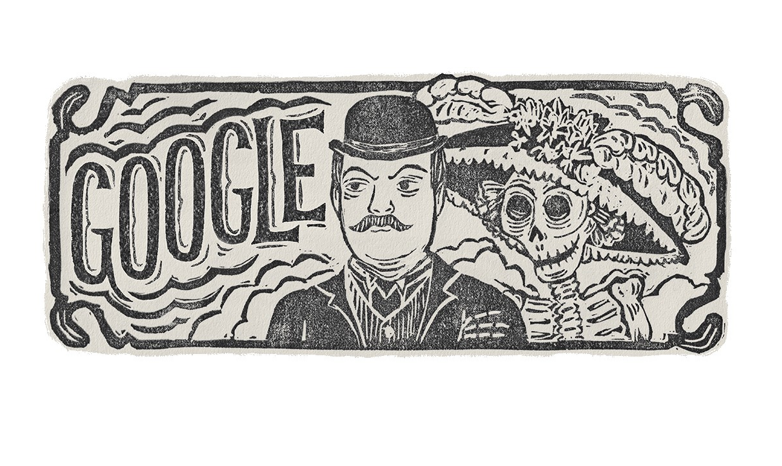Google Doodle celebrates Mexican lithographer José Guadalupe Posada’s 172nd birthday
2 February’s Google Doodle celebrates the birthday of José Guadalupe Posada, well-known for his skeleton motifs seen on the Day of the Dead

Your support helps us to tell the story
From reproductive rights to climate change to Big Tech, The Independent is on the ground when the story is developing. Whether it's investigating the financials of Elon Musk's pro-Trump PAC or producing our latest documentary, 'The A Word', which shines a light on the American women fighting for reproductive rights, we know how important it is to parse out the facts from the messaging.
At such a critical moment in US history, we need reporters on the ground. Your donation allows us to keep sending journalists to speak to both sides of the story.
The Independent is trusted by Americans across the entire political spectrum. And unlike many other quality news outlets, we choose not to lock Americans out of our reporting and analysis with paywalls. We believe quality journalism should be available to everyone, paid for by those who can afford it.
Your support makes all the difference.Today’s Google Doodle celebrates the birthday of influential Mexican graphic artist and lithographer José Guadalupe Posada.
Posada is most known for his skeleton images that are now synonymous with the Day of the Dead holiday celebrated in Mexico, and his imagery that evoked political and social critiques.
The Posada Art Foundation says that Posada’s skeleton, known as the calavera, is possibly the most popular imagery he created and he is generally attributed to the popularisation of the calavera images that became a well-known symbol seen around the Day of the Dead. Another artist, Manuel Manilla, is also often accredited with the creation of calavera artwork as well.
One of the most iconic calaveras that Posada created is known as La Calavera Catrina and depicts a skeleton in a large hat adorned with flowers. The first known date that she was used was in 1913, and was likely published around eight months after Posada’s death, the foundation said.
Posada’s work was often satirical and caricatured the living, including themes such as religion, politics and social class, the Library of Congress said.
The artist’s work appeared in many different ways, from flyers, posters, brochures and books, to working with printing houses and religious publications.
Born in 1852 in Aguascalientes, Mexico, it would have been Posada’s 172nd birthday today. Posada enrolled in the Municipal Academy of Drawing in Aguascalientes sometime in the 1860s.
After doing an apprenticeship at a print shop owned by Jose Trinidad Pedroza, where it is thought he learned lithography, he got his first publication of political cartoons in a local newspaper at the age of 19.
He would continue to work in the world of publication when he moved to León, Guanajuato, where he ran a printing and lithography workshop, at first with Pedroza, then on his own. During this time, he created some of his finest lithographic work, the foundation said.
Eventually, he moved on to Mexico City and opened his first workshop and, at some point, began working for the publishing house of Antonio Vanegas Arroyo. The foundation said that a reported low adult literacy rate could have possibly motivated the publishing house to hire Posada as chief illustrator.
His work has gone on to influence and inspire how graphic art progressed into the 20th century. Today’s Google Doodle has also been inspired by Posada’s iconic skeleton motif. The doodle was created on a pink clay-like mould.
Posada died in Mexico City, Mexico on 20 January 1913 at the age of 60.
Join our commenting forum
Join thought-provoking conversations, follow other Independent readers and see their replies
Comments